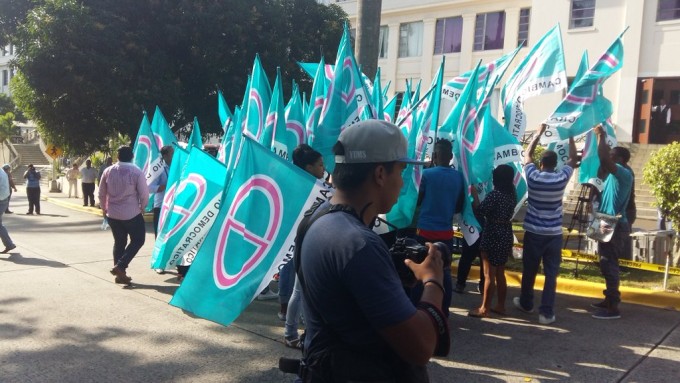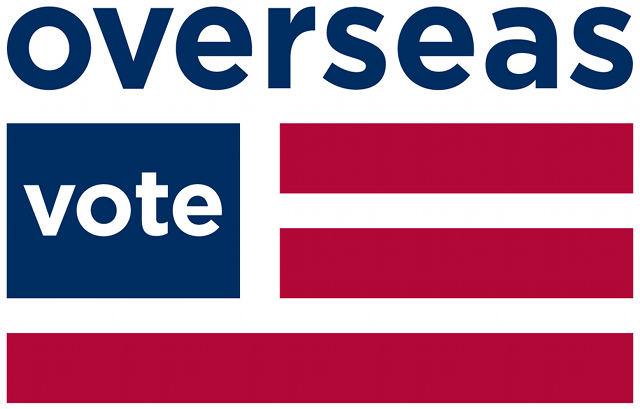
What may happen to Ricardo Martinelli, here and in the USA
by Eric Jackson
There are fascinating possibilities for the legal scholar, but what happens to Ricardo Martinelli depends on a complex matrix revolving around laws and political wills in two countries. At the moment Panamanians Supreme Court gears are in motion to get an order for Martinelli’s arrest, but he’s in Miami, beyond the unassisted reach of Panama’s jurisdiction. There are half a dozen criminal investigations pending against the former president, but the one that matters at the moment is the invasion of privacy case revolving around the former regime’s warrantless electronic eavesdropping activities.
Magistrate Jerónimo Mejia is the acting prosecutor in this case, and Magistrate Harry Díaz is the acting judge. Article 490 of the Code of Criminal Procedure provides that to order the arrest of somebody with the status of a legislator — as Martinelli has, because he’s a member of the Central American Parliament — it takes a majority of the nine-member plenum of the Supreme Court. When Martinelli didn’t show up at his December 11 court date, he was held in contempt of court, Díaz wouldn’t entertain any motions from the ex-president’s lawyers and Mejía adjourned the hearing. Later that day Díaz and private attorney Carlos Herrera Morán (who represents several of those whose conversations, movements, homes and families were electronically monitored without a court’s authorization) filed requests to have a plenary session to consider an order to arrest Martinelli. Acting magistrate Abel Zamorano — the suplente for former magistrate and now prison inmate Alejandro Moncada Luna — asked Supreme Court president José Ayú Prado to schedule such a session on December 14 but Ayú Prado, who has been recused from this case because his activities when he was acting Attorney General create an apparent conflict of interest, passed the request on to the court’s vice president, Luis Ramón Fábrega.
If a hearing is held on the 14th, most of those hearing and voting on the matter will be suplentes (alternates) rather than full magistrates. Due to their roles as acting prosecutor and judge, Mejía’s and Díaz’s seats would be filled by their respective suplentes, Luis Carrasco Mandevile and Wilfredo Sáenz. Ayú Prado is recused, and his suplente, Gabriel Fernández, died on December 5. As Mejía, Díaz and Ayú Prado are the court’s three-member Criminal Bench, a suplente from one of the court’s other chambers would have to fill in for Ayú Prado. Two-thirds of the Administrative Bench are suplentes — Zamorano in the wake of Moncada Luna’s incarceration and Nelly Cedeño de Paredes who is acting as magistrate after Víctor Benavides was forced to resign under the pressure of a criminal investigation. Fábrega is the remaining full magistrate from that bench. The three magistrates of the court’s Civil Bench, Oydén Ortega, Harley Mitchell and Hernán De León, would round out the plenum, were it held on December 14. That is, unless there are further recusals, disqualifications or someone is absent due to illness.
The court need not have its plenary session right away, and once it does there is no set time in which a decision must be rendered. December 14 is also the start of legislative hearings on President Juan Carlos Varela’s nominations of jurists who would replace magistrate Mitchell and acting magistrate Cedeño, whose terms end on December 31. Might high court politics favor a delay until new magistrates are seated? Perhaps. On the other hand, there might be a sense of urgency. For ethical reasons and to maintain such mystique in which an institution held in low public regard can shroud itself, magistrates rarely talk about business before the court until they have released their decisions.
If it is decided to hold a plenary session without delay and to issue a prompt decision, one of two things is likely to happen. Five or more votes in favor of ordering Martinelli’s arrest continues the Supreme Court case on this matter, and leads to a request for INTERPOL to issue a “red notice,” an international request to arrest and extradite Martinelli. Five or more votes against ordering the former president’s arrest effectively ends this case as to Martinelli. It would not directly affect any of the other pending cases against Martinelli or the proceedings against several other people, including two former national security directors, in the ordinary courts.
So how is it likely to go? This reporter can’t read minds, does not personally know those who would decide and would not rely on partisan math. There is a 5-4 majority of Martinelli appointees on the high court, but due to Ayú Prado’s recusal and his suplente Fernández’s death those political numbers may not describe the nine judges who would hear a motion for the former president’s arrest. Martinelli’s communique from Miami accused Harry Díaz — one of his own appointees — of being a tool of President Varela’s vengeance. Varela could have moved to replace Zamorano at any time since Moncada Luna was removed early this year but has chosen not to and is considering appointing him to finish the disgraced former magistrate’s full term. Most of the Cambio Democratico caucus in the National Assembly now disregards orders from their party’s founder and boss and it’s highly unlikely that he has an effective loyalist majority on the Supreme Court either. In the event of an arrest warrant call it bribery and intimidation if you are Ricardo Martinelli or judicial independence if you are not.
And then, in Miami…
Presume that Panama’s Supreme Court orders Martinelli’s arrest, and further presume that an annoyed and weary high court summarily brushes off the former president’s multiple habeas corpus motions, such that in effect there is no more time for the accused to buy in Panama. (Those are highly speculative presumptions, not prophesies.) Then you get into a matrix of decisions that INTERPOL might make, things that Martinelli might do, positions that the Obama administration might take with or without the advice and consent of the Varela administration, US law and international law.
INTERPOL would have to decide whether to issue a red notice. This organization has its internal politics and a long and often sordid history. While the ultra-right in the United States likes to portray the institution as this shadowy world government outfit that Barack Obama has deputized to come into the United States to arrest Americans, its authority is actually limited to passing on requests for arrests and extraditions, which may or may not be honored by national governments. INTERPOL has various red notices about Americans charged with torture or kidnapping under the aegis of the CIA or other US governmental or mercenary organizations and these are not honored by the United States or nations subject to US persuasion. Generally INTERPOL looks at due process of law issues more than political considerations these days. If Panama’s high court issues a warrant for Martinelli’s arrest and asks INTERPOL for a red notice, it will probably be issued — but it would not be automatically issued.
When Martinelli sees a red notice coming, does he remain in Miami and fight, accept extradition to Panama or run to a third country? If he tries to run, will the US government allow this?
Presume that he stays in Miami and resists extradition. Perhaps the first legal principle is that the United States and Panama have a 1905 extradition treaty, which contains no provision for extraditing those accused of invasion of privacy or any other electronic eavesdropping offense. But Panama and the United States are also parties to other treaties, such as the UN Convention Against Corruption. Article 19 of that treaty — which is not self-executing — encourages states to criminalize public officials’ abuse of their public functions. The more binding Inter-American Convention Against Corruption might be attacked as only applying to public officials with pecuniary motives but that limitation is not specified and Ricardo Martinelli’s political use of eavesdropping information is arguably the “improper use by a government official… for his own benefit or that of a third party, of any kind of classified or confidential information which that official… who performs public functions has obtained because of, or in the performance of, his functions.” The hemispheric treaty specifically provides for extradition. There are also “War on Drugs” and anti-terrorist mutual legal assistance treaties between the United States and Panama upon which extradition might be based. The law of an extradition for illegal eavesdropping case against Ricardo Martinelli in the United States is vague, complicated and varied enough to generate large attorney fees. He probably can be extradited as a matter of law.
For this particular offense, and with respect to the Obama administration, the political will to extradite is the more important question. Isn’t what Ricardo Martinelli is accused of doing remarkably like what Edward Snowden, supported by many documents, has accused The National Security Agency and other governmental entities of doing on a global scale under Barack Obama’s direction? A Martinelli defense might want to raise that argument. In a US court it would be held to be irrelevant and an attempt to introduce evidence about it an attack on US national security worthy of a gag and non-disclosure order. It the court of public opinion it could play differently.
In the US political realm, it is believed that Obama personally dislikes Martinelli. In the smaller world of right-wing Miami politics, US Representative Ileana Ros-Lehtinen appears to get along well with Martinelli, while US Senator Marco Rubio has been one of Martinelli’s critics.
And does what Panama thinks figure into Obama’s political calculations? We don’t actually know whether Varela wants his predecessor returned to Panama and adding another distraction to our public discourse. For all we know Varela may have quietly told Obama to let Martinelli spend years on end and much of his fortune fighting in the US courts, or to just let him stay in Miami unmolested.
Presume that Obama prefers to be rid of Martinelli. There would be ordinary extradition proceedings that could be time-consuming, and it could be expected that the former Panamanian president would interpose a request for political asylum, arguing that he would face political persecution if forced to return to Panama. But there are other proceedings far quicker than an extradition fight in the courts.
Did Ricardo Martinelli flee Panama last January with the protection of a diplomatic passport that he had as a member of the Central American Parliament? US presidents have the summary power to declare any diplomat or purported diplomat persona non grata and expel such a person from the United States. The courts have no jurisdiction in those cases.
And what is Martinelli’s immigration status in the United States anyway? Washington does not comment about such things. For all we know he could be a naturalized US citizen or possessed of a green card. Very likely, however, he has a visitor’s visa which he may have already overstayed. The US State Department has the summary power to deny or revoke any foreigner’s visa, but once in the USA such a person would ordinarily have access to the courts.
Would it be such a wonderful opportunity for delay and the continued easy life in an upscale Miami condo if Martinelli decided to resist an extradition effort or a move to deport him for lack of a visa? Perhaps. But the guy would be a flight risk and could be obliged to reside in a jail cell while fighting to stay in the United States.
Moreover, would immigration and extradition law be Martinelli’s only legal concerns in the United States? The contents of Italian criminal case files describe a plan to launder funds from a kickback scheme through a company in Miami. Witnesses and document in the Financial Pacific affair indicate Martinelli’s participation in an insider trading scheme with respect to Petaquilla Minerals gold mining stock. If that commercial paper was traded on Canadian and European but not US exchanges, it was sold over the counter in the United States and there are US laws about stock swindles that happen overseas. American criminal law being as extremist as it notoriously is, a “nuclear option” that the Obama administration probably has if it wants to use it is to indict Martinelli for financial crimes in the United States. The prison terms there are substantially longer than they are here.
But then the Obama administration, for whatever reason, might decide to tolerate Ricardo Martinelli’s continued presence in the United States. Any such policy decision would be subject to review starting in January of 2017, when the next US president takes office.













Very informative, thanks Eric.